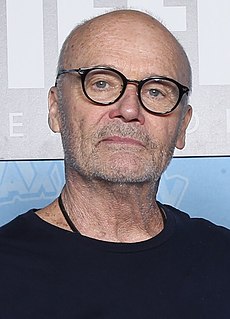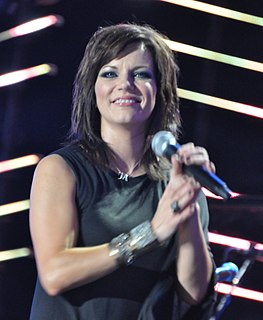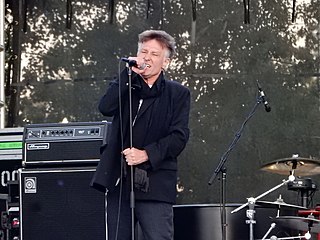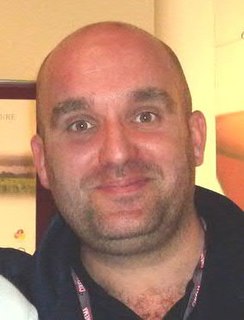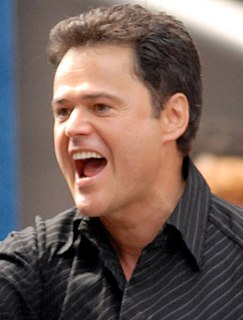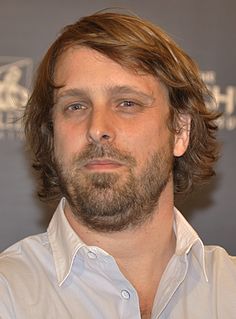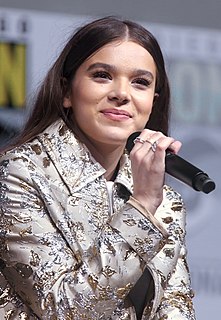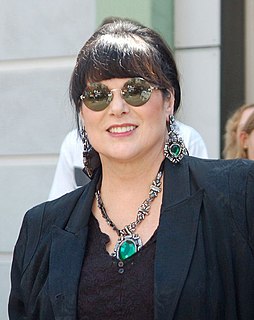A Quote by Creed Bratton
I liked back in the sixties where you'd turn on the radio and go 'Oh that's Hendrix, that's Creedence Clearwater, that's The Doors, there's The Grass Roots, The Monkees, there's Big Brother.' You could just instantly hear it and tell. But in the eighties and nineties there's no way you could do that.
Related Quotes
If you look back on the period, the 1980s has never been seen as cool. You think of the music, and it always has a kitsch quality to it because everyone looks so ridiculous. Even the Nineties, with The Stone Roses and other bands, was cool before the Eighties. It really missed the boat! The Sixties was always cool, even then. That was my Dad's era and I was always jealous of that. But now, as an adult, looking back, we were part of this mental time. It was the most enormous amount of tribes that could have ever existed in one place.
You always draw from your roots. I'm influenced by everything I hear and see, and that includes music today, but obviously I go back to my early influences: Stevie Wonder, Parliament, Earth, Wind & Fire, Ohio Players, Average White Band. Those kind of artists are what I look to. When I hear that stuff on the radio, I turn it up!
He was Jimi Hendrix! He didn't sound like anybody else but himself. He was like Charlie Parker in his way of playing, he played well, he was a person that made waves. When you heard Jimi Hendrix you knew it was Jimi Hendrix, he introduced himself in his instrument... You know, many radio stations play records and a lot of the times they don't call out the names who you just listened to, but when they play Jimi Hendrix, you don't have to tell me, [you know] it's Jimi Hendrix.
Supposing we knew that up there is some alien civilization and it's sending radio signals our way we should not tell the public where that is. We could say that we've picked up a signal, but we should not tell them where for the simple reason that anybody could commandeer a radio telescope, set themselves up as some self appointed spokesperson of mankind and start beaming all sorts of crazy messages back to the aliens.
When I am working a book, I go through my library and take a look through some of the great cartoonists of the past, like Cliff Sterrett, who did "Polly and Her Pals," or Winsor McCay who did "A Little Nemo in Slumberland," and Herriman - and I just looked through these guys and looked for somebody to steal. You know, looked for who I could swipe, or turn into - who's work I will turn into my work. And I still use, after all these years, these artists as inspirations. So, here in my eighties, I go back to when I was eight for my inspiration.
In the Sixties, it was mods and rockers, and hippies and casuals, whereas in the early Eighties, there was Goths, punks, mods, skinheads, New Romantics, casuals, metal heads... the streets looked completely different. You go into town now and you can't tell one kid from another - you don't know what they're into. You can sort of tell a skateboard kid because his trousers are half way down his legs, but that's about it. Back then, people wore their hearts on their sleeves. It was a really bold time.
I could turn on my radio in the morning when I was getting dressed for school and hear Frank Sinatra and Duke Ellington and Benny Goodman and think this is the music. Now that music is art. Ellington is art. At that time it was just what you heard on the radio. Cole Porter was just a guy who wrote pretty songs and Billie Holliday would sing them.
I could be inspired by something I see or something I hear and write down or send to a friend or a writer or whether I have instrumental tracks or just a couple chords recorded on my phone. If I have a couple sessions set, I'll go into the studio with the people I'm lucky enough to call my friends because I feel like I can talk to them and then suddenly our conversations turn into these songs you hear on the radio. I still don't understand how it happens but I talk about my experiences and my situations and everything and then they turn into these amazing pop songs.
